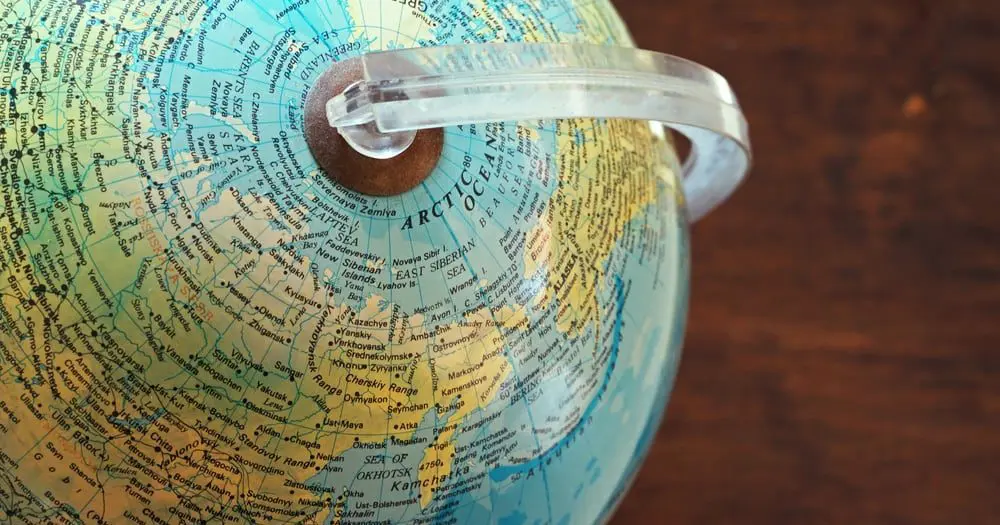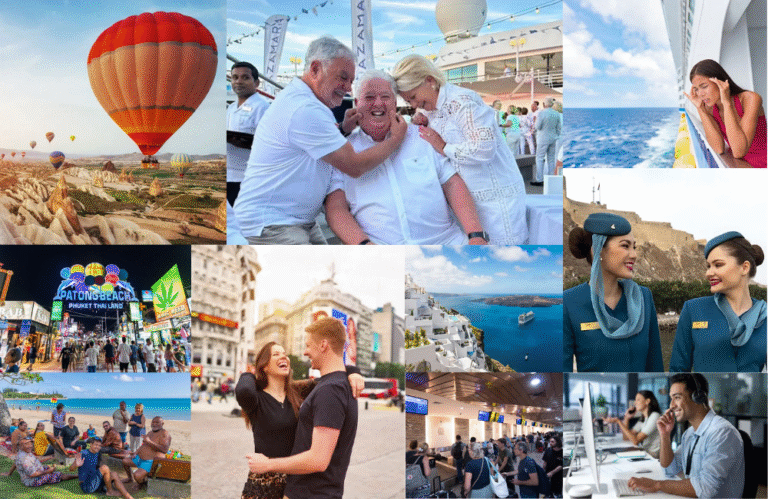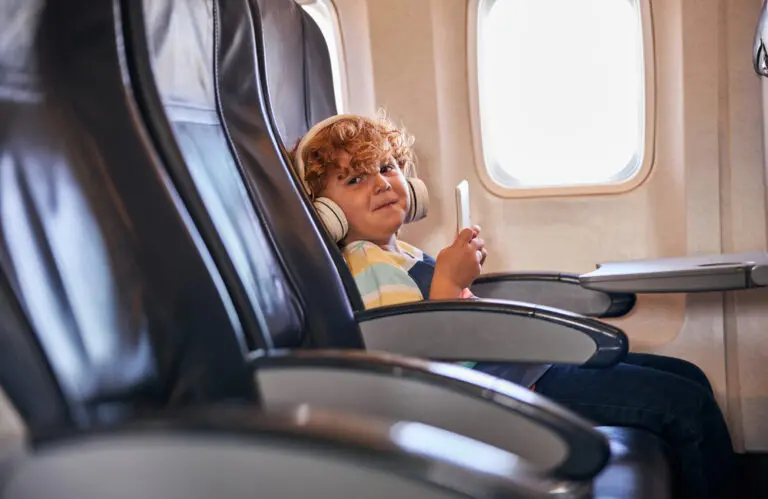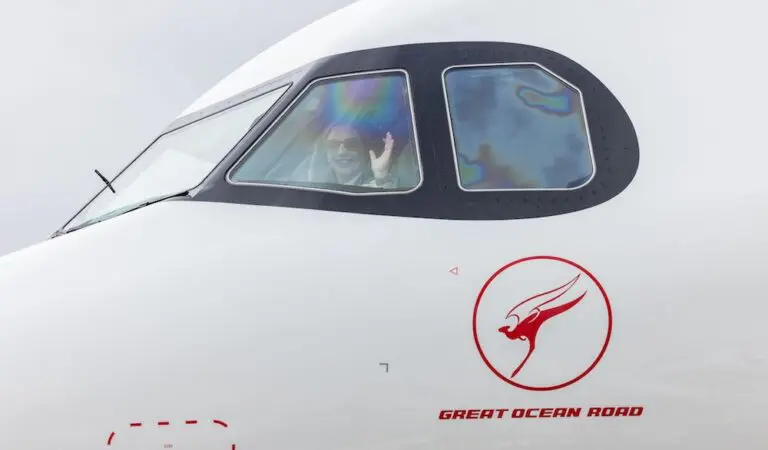Since the dawn of time, major events have changed the course of history – tectonic shifts, ice ages, revolutions. But what about events that have impacted the way we travel?
The birth of aviation, the sinking of Titanic have earned their place in the travel history books. But the pages are still being written. Just as the world continues to evolve, so does travel.
We take a look at some of the key current events driving that change:
Brexit
Brexit, bregret and now brexecution… How many more words beginning with “br” can the UK coin before the long-term implications of its decision to leave the European Union will actually be known? The answer is, probably quite a few.
The World Travel & Tourism Council (WTTC) insists travel to, from, and within the EU and UK won’t be affected in the short term.
“We are entering a period of market uncertainty that will undoubtedly put pressure on Travel & Tourism businesses; however, we know that our sector is resilient and we expect business and leisure travel to hold up in the face of these challenges,” president and chief executive David Scowsill says.
But the immediate hit to the good old British pound has already made the destination better value for a number of international travellers, Aussies included.
Australian Federation of Travel Agents (AFTA) Chief Executive Jayson Westbury stresses it’s still too early to know how this major world event will change the international travel landscape, but he points to the upside.
“It’s an opportunity in the short term to have a stronger exchange rate for Aussies in the next few months,” he tells KarryOn.
Zika
It’s not the first time a disease has played havoc with travel plans. In 2003, the SARS epidemic saw arrivals to Hong Kong plummet a huge 68% two months after the World Health Organisation issued a warning.
This latest threat, Zika, is carried by the same mosquito that carries dengue and chikungunya and is fast spreading around the world with Indonesia the latest country to be added to the danger list.
The concerns are primarily for pregnant women, due to the links between the disease and an increased risk of microcephaly along with other brain issues. But the fast-growing babymoon market is worth a considerable amount.
Dr Raymond Chan, spokesperson for the Royal College of Pathologists of Australasia, tells KarryOn that it’s still “hard to know” how the current Zika outbreak will pan out. Although he reveals public anxiety about the disease has been at lower levels than originally expected.
“This is a mosquito-borne infection so we’re really relying on methods to control mosquitoes and to control people being exposed to mosquitoes,” he says. Basically, don’t forget to pack your mozzie spray people.
But Westbury played down the disease’s impact on world travel.
“Zika will no doubt be around for a while and travellers need to ensure they are careful when in areas known to be impacted,” he says.
“I don’t think it will be a deterrent to travel, but it will depend on how it is managed across the globe.”
Terrorism
Last year, one in four travellers are believed to have changed their travel plans as a result of concerns over safety.
Of those, 83% said that potential terrorist activity was their primary reason to avoid travel to certain destinations. That’s a significant amount.
And who can blame them? Images of death and chaos around the world hardly set travellers’ nerves at ease.
But how long-term are the effects?
According to a World Travel and Tourism Council (WTTC) report, not that long. The organisation’s research found that it takes tourism 13 months to recover from a terrorist attack, less than the 21 months taken to bounce back from disease, the 24 months from an environmental disaster (24 months), and the 27 months from political unrest.
International Air Transport Association (IATA) director general and chief executive Tony Tyler insisted terrorism will never reverse the world’s “interconnectedness”.
“The desire of the human spirit to explore and trade will always triumph over suspicion and fear,” he said after last week’s attack on Istanbul.
But AFTA’s Westbury describes it as the “single biggest threat to the travel industry”.
“It is so random and so unpredictable that I believe it is the one thing that is on people’s minds the most,” he says.
“With the latest attacks in Europe from Paris to Brussels and now Turkey, I do think terrorism plays on travellers’ minds and can impact destinational decisions.”
Dollar flux
The fluctuations of the dollar flit between being a blessing and a curse. And even when travel agents are celebrating, domestic tourism operators are downcast and vice versa
At the moment, the weakened Aussie dollar means more of us may be contemplating a holiday at home this year, with Tourism and Transport Forum (TTF) chief executive Margie Osmond calling the shift “fantastic news” for the tourism industry.
But reports from other areas of the industry suggest otherwise. Take the USA for one – Aussies are still flocking across the Pacific despite the days of parity being well and truly a thing of the past.
“Despite concerns over the impact on travel intention to the USA and actual travel numbers when the value of the Australian dollar dropped in December 2014, there is no evidence to show that overall visitor numbers have been affected,” Brand USA director Australia and New Zealand Oliver Philpot told KarryOn last month.
AFTA’s Westbury also believes the impact of the dollar will be of secondary significance.
“As the Aussie floats across a range of currencies, travellers clearly are mindful of what the level is for the country they are going to, but I don’t believe the current and say rates expected over the next 12 months will have any dramatic impact on decision making for outbound travel,” he says.
Refugee crisis
As desperate refugees flee their war-torn homes for the relative security of Europe, boats continue to make their way across the Mediterranean with countries like Greece and Croatia on the frontline.
But news coverage of the migration has deterred many from travelling to an area that has long been dependent on tourism.
A tourism recovery for Greece tailed off in the second half of 2015, with the last quarter of the year seeing a decline of 2.6% as the crisis worsened although the year still finished 7% up overall according to United Nations World Tourism Organisation (UNWTO).
The images have taken their toll on cruise lines operating in the area too, according to Carnival Corp Chief Executive Arnold Donald who late last year revealed potential customers had been voicing their concerns.
Despite the challenges, the country’s tourism minister Elena Kountoura is confident of even stronger growth in 2016, telling ITB delegates earlier this year that there had been a “return to stability” in the islands.
And, although Greek island hopping is a preferred Aussie pastime when it comes to Mediterranean meanderings, the distance of the destinations impacted from home makes the crisis less of a concern for Aussies, according to Westbury.
“I don’t think this plays on the minds of Aussies who are thinking of travelling overseas,” he says.











